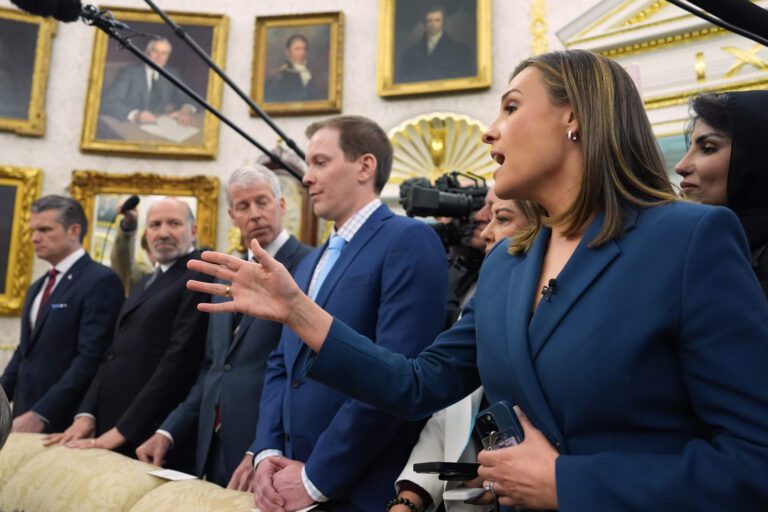Trump Threatens ABC News with License Revocation: A Clash of Perspectives
In a recent confrontation, former President Donald Trump escalated his ongoing feud with ABC News, suggesting that the Federal Communications Commission (FCC) Chairman, Brendan Carr, should “look at” revoking the network’s broadcast license. This assertion was made during an exchange with ABC’s Chief White House Correspondent, Mary Bruce.
Trump’s Accusations and Reactions
During a press briefing, Bruce questioned Trump about his reasons for waiting on Congress to release the Epstein files. Trump didn’t hesitate to respond, turning the criticism onto Bruce personally:
"You know, it’s not the question that I mind. It’s your attitude. I think you are a terrible reporter," he stated. “You could even ask that same exact question nicely. You’re a terrible person and a terrible reporter."
Trump further distanced himself from Epstein, stating:
"As far as the Epstein files, I have nothing to do with Jeffrey Epstein. I threw him out of my club many years ago because I thought he was a sick pervert."
Critique of Media Coverage
Trump didn’t stop there; he lambasted ABC’s coverage of his presidency, claiming that it was “97 percent negative." This assertion echoes a study by conservative media watchdog, NewsBusters, which revealed that 92 percent of ABC’s, NBC’s, and CBS’s coverage of Trump has been negative.
The former president argued that such biased reporting is part of a broader “Democrat hoax,” aimed at distracting from his achievements in office.
"People are wise to your hoax," Trump commented, further asserting that ABC should lose its license due to the “fake” reporting.
Broadcast Licenses: A Brief Overview
Broadcast licenses allow networks to use public airwaves, resulting in substantial profits for companies like ABC. The four major networks—ABC, NBC, CBS, and Fox—benefit significantly from these exclusive rights, which are critical for their operations.
Trump’s comments have brought renewed scrutiny to the power of the FCC in regulating media organizations. Carr has previously argued that there is a public obligation associated with broadcasting licenses and warned against networks running what he termed a "narrow partisan circus."
Recent Tensions and Legal Battles
The strained relationship between Trump and ABC escalated further after Disney, ABC’s parent company, paid $16 million to settle a defamation lawsuit. This lawsuit stemmed from George Stephanopoulos’s erroneous statements about Trump being "found liable for rape." Despite the settlement, tensions have not eased.
Notable incidents include:
- Terry Moran’s Dismissal: ABC faced backlash after a correspondent labeled Trump and aide Stephen Miller as “world-class haters,” leading to Moran’s termination.
- Luxury Jet Controversy: Trump threatened legal action over coverage of his acceptance of a jet from Qatar, asserting that reporters falsely claimed it was a gift.
- Jimmy Kimmel’s Comments: Following Kimmel’s controversial remarks about the MAGA movement, Trump expressed outrage, stating, “I can’t believe ABC Fake News gave Jimmy Kimmel his job back.”
Future of ABC’s Broadcast License
In recent interviews, Carr has emphasized that broadcast networks must serve public interest and warned that failure to do so could jeopardize their licenses:
"You can’t run a narrow partisan circus and ultimately be holding a broadcast license. You can do that on cable, you can do that on a podcast, but licensed broadcast TV is just fundamentally different."
With these remarks, he suggests that there could be consequences for networks that do not comply with expected journalistic standards.
Conclusion
Trump’s ongoing critique of ABC News not only highlights the contentious landscape of media and politics but also raises questions about the role of regulatory bodies like the FCC in overseeing media operations. As the debate continues, the future of broadcast journalism remains a focal point in discussions about fairness, bias, and the responsibilities of media organizations.
For more information on media regulations and broadcasting licenses, check out resources from the FCC.


